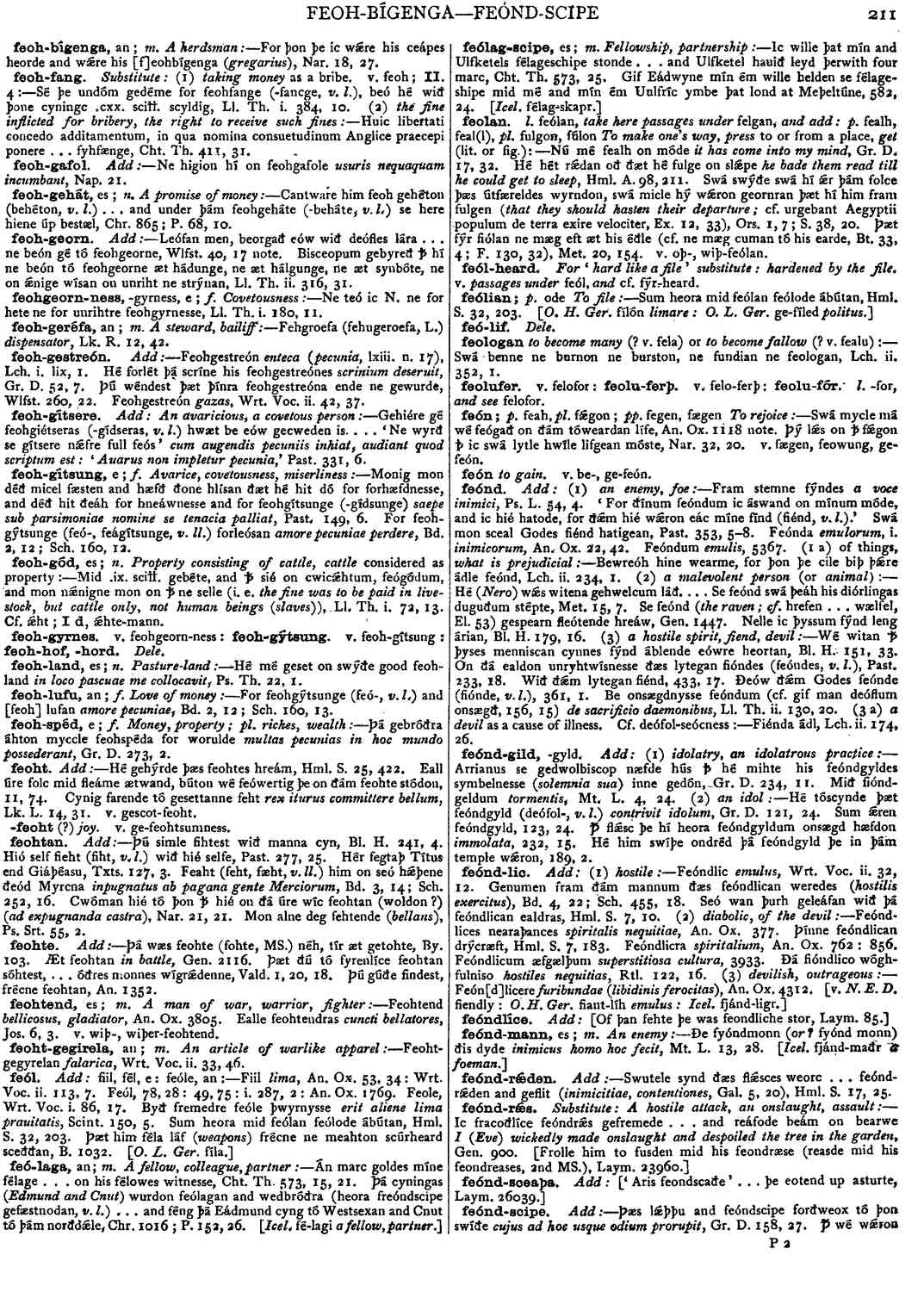feónd
-
Fram stemne fýndes
a voce inimici,
- Ps. L. 54, 4.
-
'For ðínum feóndum ic áswand on mínum móde, and ic hié hatode, for ðǽm hié wǽron eác míne fínd (fiénd, v. l.).' Swá mon sceal Godes fiénd hatigean,
- Past. 353, 5-8 .
-
Feónda
emulorum, i. inimicorum,
- An. Ox. 22, 42 .
-
Feóndum
emulis,
- 5367.
-
Bewreóh hine wearme, for þon þe cile biþ þǽre ádle feónd,
- Lch. ii. 234, 1 .
-
Hé (Nero) wǽs witena gehwelcum láð. . . . Se feónd swá þeáh his diórlingas duguðum stépte,
- Met. 15, 7 .
-
Se feónd
(the raven; cf.
hrefen . . . wælfel, El. 53) gespearn fleótende hreáw,
- Gen. 1447 .
-
Nelle ic þyssum fýnd leng árian,
- Bl. H. 179, 16 .
-
Wé witan ꝥ þyses menniscan cynnes fýnd áblende eówre heortan,
- Bl. H. 151, 33 .
-
On ðá ealdon unryhtwísnesse ðæs lytegan fióndes (feóndes, v. l.),
- Past. 233, 18 .
-
Wið ðǽm lytegan fiénd,
- 433, 17 .
-
Ðeów ðǽm Godes feónde (fiónde, v. l.),
- 361, 1 .
-
Be onsægdnysse feóndum (cf. gif man deóflum onsægð, 156, 15)
de sacrificio daemonibus,
- Ll. Th. ii. 130, 20.
-
Fiénda ádl,
- Lch. ii. 174, 26.
Bosworth, Joseph. “feónd.” In An Anglo-Saxon Dictionary Online, edited by Thomas Northcote Toller, Christ Sean, and Ondřej Tichy. Prague: Faculty of Arts, Charles University, 2014. https://bosworthtoller.com/44744.
Checked: 1